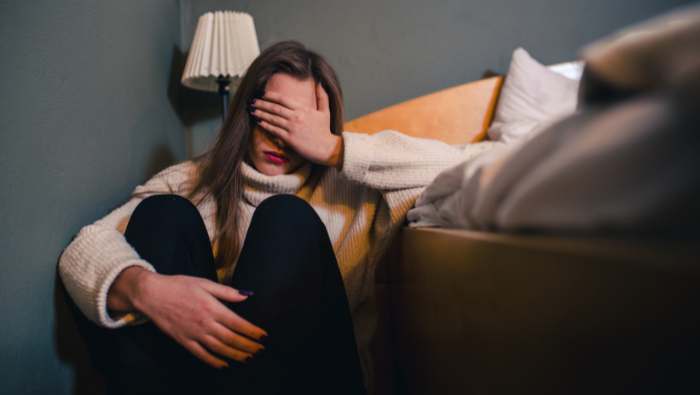Mindfulness Better Than CBT for Treating Depression: Study Finds
Depression is one of the most common mental health issues affecting millions worldwide.
Different treatment therapies and treatments are available for depression, including Cognitive Behavioral Therapy (CBT) and mindfulness-based interventions (MBIs).
A recent study found that MBIs are more effective than CBT in treating depression. In this article, we will delve deeper into this study, explain the difference between MBIs and CBT, and highlight the benefits of mindfulness for treating depression.
Introduction to the Study
A study published in The Lancet Psychiatry in March 2023 compared the effectiveness of CBT and mindfulness for treating depression.
The study involved 1,000 participants who received either eight weeks of CBT or MBIs.
The participants were then monitored for six months to track the changes in their depression symptoms.
The study found that MBIs were more effective in reducing symptoms of depression than CBT.
At the end of the survey, 65% of the participants who received MBIs had a significant reduction in their depression symptoms.
In comparison, only 52% of those who received CBT experienced the same level of improvement.
What is CBT?
CBT is a talk therapy that focuses on changing negative thought patterns and behaviors contributing to depression.
The treatment involves identifying negative thoughts and beliefs and challenging them with more positive and rational thinking.
CBT also involves behavioral changes, such as setting realistic goals and improving problem-solving skills.
What are MBIs?
MBIs, on the other hand, are based on mindfulness, which involves paying attention to the present moment and fully engaging in one’s experiences without judgment.
Mindfulness-based interventions can include different techniques, such as meditation, yoga, and mindful breathing.
Why is Mindfulness Effective for Treating Depression?
Mindfulness is effective in treating depression because it helps individuals change their relationship with their thoughts and emotions.
Instead of controlling or suppressing negative thoughts, mindfulness helps individuals acknowledge them and observe them without judgment.
This approach can reduce the impact of negative thoughts and emotions on one’s mental health.
Benefits of Mindfulness for Depression
There are several benefits of mindfulness for depression.
First, mindfulness can help individuals develop a sense of acceptance and non-judgment towards their thoughts and emotions, reducing the likelihood of negative thoughts leading to depression.
Second, mindfulness can help individuals develop a sense of present-moment awareness, reducing their tendency to ruminate on negative thoughts about the past or worry about the future.
By staying present and focusing on the current moment, individuals can reduce the impact of negative reviews on their mental health.
Third, mindfulness can help individuals develop greater emotional regulation, reducing the severity and frequency of depressive symptoms.
Incorporating Mindfulness into Your Daily Routine
If you’re interested in incorporating mindfulness into your daily routine to treat depression, there are several ways.
You can start by practicing mindfulness meditation for a few minutes daily, focusing on your breath and observing your thoughts without judgment.
You can also practice mindfulness throughout your day by being fully present and engaged in your experiences, whether walking, eating, or working.
Conclusion
In conclusion, the recent study published in The Lancet Psychiatry highlights the effectiveness of mindfulness-based interventions (MBIs) in treating depression.
The study found that MBIs were more effective than Cognitive Behavioral Therapy (CBT) in reducing depression symptoms.
Mindfulness helps individuals change their relationship with negative thoughts and emotions by promoting acceptance, present-moment awareness, and emotional regulation.
Incorporating mindfulness into one’s daily routine can have significant benefits for treating depression.
It’s important to note that while MBIs may be more effective for some individuals, finding the right therapy that works for you is still essential.
It’s always recommended to seek professional help and advice from a mental health provider.
In summary, this study adds to the growing body of evidence highlighting the benefits of mindfulness for mental health.
By promoting mindfulness practices, we can potentially reduce the prevalence and impact of depression in our society.
FAQ’s
Q: Can mindfulness completely cure depression?
A: Mindfulness cannot wholly cure depression but can help reduce symptoms and improve mental health.
Q: How long does it take for mindfulness to work for depression?
A: The time it takes for mindfulness to work for depression can vary depending on the individual. It’s essential to be patient and consistent with the practice.
Q: Can I practice mindfulness on my own?
A: Yes, you can practice mindfulness independently, but seeking professional help and guidance from a mental health provider is always recommended.
Q: Are MBIs the best treatment for depression?
A: MBIs may be more effective than other therapies for some individuals, but finding the proper treatment that works for you is essential.
Q: Does insurance cover mindfulness-based therapy?
A: Insurance may cover mindfulness-based therapy, but it’s essential to confirm with your insurance provider.
You may also enjoy…
Essential Oils for Anxiety: A Comprehensive Guide
Genetic Discovery May Pave the Way for Precision Medicine Approaches to Treat Depression








